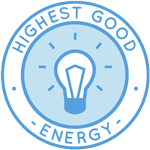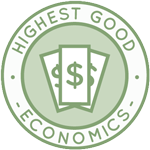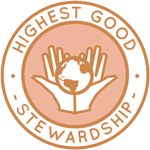No-Waste Communities – One Community Weekly Progress Update #352
No-waste communities are one way to reduce the global buildup of trash. Through community collaboration we can create and share more comprehensive and innovative purchasing strategies, reuse models, and recycling and disposal options. What we learn can then be open sourced and free-shared to help evolve and diversify the ideas into other environments too. Problem solving and sharing solutions like this is one component of what One Community is calling living and creating for “The Highest Good of All.”
- Here’s our project overview
- Here’s our world-change methodology
- Here’s how this becomes self-replicating
- Here’s how we are open source and free-sharing all the do-it-yourself designs

No-Waste Communities – One Community
OUR MAIN OPEN SOURCE HUBS
Click on each icon to be taken to the corresponding Highest Good hub page.
One Community’s physical location will forward this movement of having no-waste communities as the first of many self-replicating teacher/demonstration communities, villages, and cities to be built around the world. This is the December 22nd, 2019 edition (#352) of our weekly progress update detailing our team’s development and accomplishments:
No-Waste Communities
One Community Progress Update #352
DONATE | COLLABORATE | HELP WITH LARGE-SCALE FUNDING
CLICK HERE IF YOU’D LIKE TO RECEIVE AN EMAIL EACH WEEK WHEN WE RELEASE A NEW UPDATE
YOU CAN ALSO JOIN US THROUGH SOCIAL MEDIA
ONE COMMUNITY WEEKLY UPDATE DETAILS
HIGHEST GOOD HOUSING PROGRESS
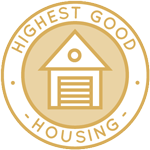 One Community is designing no-waste communities through Highest Good housing that is artistic and beautiful, more affordable, more space efficient, lasts longer, DIY buildable, and constructed with healthy and sustainable materials:
One Community is designing no-waste communities through Highest Good housing that is artistic and beautiful, more affordable, more space efficient, lasts longer, DIY buildable, and constructed with healthy and sustainable materials:
- Learn about: Our Upcoming Crowdfunding Campaign
- Learn about the different village models: 7 Sustainable Village Models
- Visit the open source portals for the first two: Earthbag Village OS Hub | Straw Bale Village OS Hub
This week the core team began building the new Hydro Energy Setup and Maintenance page. We created the basic page structure, table of contents, and social media imagery and descriptions. You can see some of this work here.
This week Oluyomi “Yomi” Sanyaolu (Technical Writer and Researcher) completed his 9th week with the team, continuing cost analysis of the external Earthbag Village components. This week Yomi edited the wind and hydro power chapters by including more products for comparisons and to achieve more accurate estimations for price per kW. He also added the recommendations for different sized applications for both wind and hydro turbines. You can see some of this behind-the-scenes work here.
Dean Scholz (Architectural Designer) also continued helping with the Earthbag Village (Pod 1) 4-dome cluster designs. This week was week #173 of Dean’s work and the focus was continuing to test and develop the rooftop-patio stairway access. You can see some of this ongoing work here.
DUPLICABLE CITY CENTER PROGRESS
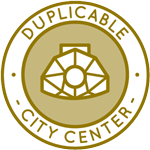 One Community is designing no-waste communities through a Duplicable and Sustainable City Center that is LEED Platinum certified/Sustainable, can feed 200 people at a time, provide laundry for over 300 people, is beautiful, spacious, and saves resources, money, and space:
One Community is designing no-waste communities through a Duplicable and Sustainable City Center that is LEED Platinum certified/Sustainable, can feed 200 people at a time, provide laundry for over 300 people, is beautiful, spacious, and saves resources, money, and space:
- Learn about this building and it’s function: Duplicable City Center Open Source Hub
This week the core team working with Ron Huang (Mechanical Engineer) continued with his 32nd week developing and refining the Energy Modeling tutorial needed to achieve our LEED Platinum certification. This week Ron added space definitions, include plug loads and occupancy graphics, and continued working together with the core team to refine and clarify the content. You can see some of this work here and we’d say this brings completion of the City Center energy analysis component to 90% complete.

Continued Refining the Energy Modeling Tutorial Needed to Achieve Our LEED Platinum Certification – Click for HVAC Page
HIGHEST GOOD FOOD PROGRESS
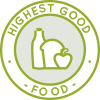 One Community is designing no-waste communities through Highest Good food that is more diverse, more nutritious, locally grown and sustainable, and part of our open source botanical garden model to support and share bio-diversity:
One Community is designing no-waste communities through Highest Good food that is more diverse, more nutritious, locally grown and sustainable, and part of our open source botanical garden model to support and share bio-diversity:
- Learn about the structures: Hoop House Hub | Aquapini & Walipini Open Source Hub
- See what we’ll be growing: Gardens & Hoop Houses | Large-scale Structures | Food Forest | TA
This week the core team continued working on our behind-the-scenes chicken Google Doc for the specific chicken breeds that will be best for our project. We cleaned up our the doc by deleting all the individual tables for each breed, summarized them in a few sentences, and worked on revising the rest of the content too. We identified our top 9 videos that will be broken down into time frames regarding the chicken coop and run construction. You can see some of these developments here.

Continued Working on Our Behind-the-scenes Chicken Google Doc for Our Specific Chicken Breeds – Click for Page
And the core team finalized the rabbit hutch assembly instructions by doing a final review and edit, creating new imagery, creating the imagery that will be used to share it on the website, and creating the open source directory.
In addition, the core team continued developing the open source permaculture design content, specifically the Case Study section. This week we added content and further revised Step 1 (Assess Resources and Identify Needs) and added a new Step 0 about familiarizing yourself with the roots of the permaculture process. You can see some of this behind-the-scenes work here.
Mohammad Almuzaial (Civil and Construction Engineer) also continued with his 5th week helping with the Aquapini/Walipini civil engineering details. This week Mohammad input actual land coordination to obtain actual climate data to perform thermal analysis, adjusted the structures cool-air inlet heights, and finished all 4 structures’ exterior shells including: Walls, Roofs, Floors, Doors, Skylights, and Exterior Glazing. He also started modeling the interior of the botanical gardens and completed the large-scale production aquapini interior terrace levels & planter soil retaining walls and interior water storage walls & levels. You can see some of this work here and we’d say this brings this part of this component to 65% complete.
Ali Ghahremannezhad (Mechanical Engineer) also continued with his 3rd week as a member of the team and working on the climate batteries for the Aquapini/Walipini structures. This week Ali worked on improving the previous transient thermal 1D model. A new dehumidification model was also added to the current model. This new model accounts for the relative humidity and humidity ratio of the air at the inlet and outlet of the climate battery, and determines the rate of condensed water inside the pipes. You can see some of this work here.
HIGHEST GOOD EDUCATION PROGRESS
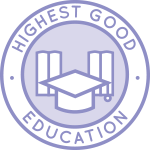 One Community is designing no-waste communities through Highest Good education that is for all ages, applicable in any environment, adaptable to individual needs, far exceeds traditional education standards, and more fun for both the teachers and the students. This component of One Community is about 95% complete with only the Open Source School Licensing and Ultimate Classroom construction and assembly details remaining to be finished. With over 8 years of work invested in the process, the sections below are all complete until we move onto the property and continue the development and open sourcing process with teachers and students – a development process that is built directly into the structure of the education program and everything else we’re creating too:
One Community is designing no-waste communities through Highest Good education that is for all ages, applicable in any environment, adaptable to individual needs, far exceeds traditional education standards, and more fun for both the teachers and the students. This component of One Community is about 95% complete with only the Open Source School Licensing and Ultimate Classroom construction and assembly details remaining to be finished. With over 8 years of work invested in the process, the sections below are all complete until we move onto the property and continue the development and open sourcing process with teachers and students – a development process that is built directly into the structure of the education program and everything else we’re creating too:
- Program Overview: Education Open Source Hub
- How the components work together: How to use the Education for Life Program
- Lesson Plans for Life – Lesson Plans How-to
- Foundations of Outstanding Leaders, Teachers, and Communicators
- Curriculum for Life
- Teaching Strategies for Life
- Learning Tools and Toys for Life
- Evaluation and Evolution
This week Dan Alleck (Designer and Illustrator) completed his 60th week helping with render additions and finishing work for the rooms in the the Ultimate Classroom. This week he continued revisions and additions to the indigo room representing “Social Sciences.” What you see here are his second round of revisions and additions to this room.

Continued Revisions and Additions to the Indigo Room Representing “Social Sciences” – Click for Page
Ziqian Zheng (Architectural Designer and Drafter) also continued with week 6 as a member of the team now working on the the Ultimate Classroom. This week Ziqian continued development of the Ultimate Classroom by completing the floor plan in AutoCAD and beginning rendering for a video walkthrough.

Completed the Ultimate Classroom Floor Plan in AutoCAD and Began Rendering for a Video Walkthrough – Click for Page
HIGHEST GOOD SOCIETY PROGRESS
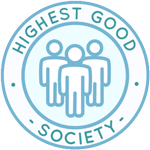 One Community is designing no-waste communities through a Highest Good society approach to living that is founded on fulfilled living, the study of meeting human needs, Community, and making a difference in the world:
One Community is designing no-waste communities through a Highest Good society approach to living that is founded on fulfilled living, the study of meeting human needs, Community, and making a difference in the world:
- Read the Highest Good society overview: Highest Good Society
- Learn about the model for fulfilled living and sharing: A Day in the Life
- Learn about the 4 economic models: RBE | For-profit | Non-profit | Entrepreneurship
- Learn about our open source community collaboration and management software: The Highest Good Network
This week Emilio Nájera (Digital Marketer) continued work on our volunteer and donation campaigns. This week he started creating the keyword list for the Earthbag Engineering Page. You can see some of this work here.
Deema Ali (Graphic/Video Designer) also completed her 5th week designing new versions of the One Community Overview videos. This week Deema continued to tweak and revise the main One Community Overview video. She created a new composite and added new clips and new transitions. You can see some of this behind-the-scenes work for no-waste communities here.

Created a New Composite and Added New Clips and New Transitions for the One Community Overview Videos – Click for Home Page
AND WE PRODUCED THIS WEEKLY UPDATES BLOG – CLICK HERE TO SUBSCRIBE
FOLLOW ONE COMMUNITY’S PROGRESS (click icons for our pages)
INVESTOR PAGES
GET INVOLVED
DONATE | WAYS ANYONE CAN HELP | MEMBERSHIP
CLICK HERE FOR ALL PAST UPDATES
NO-WASTE COMMUNITIES – WHAT ONE COMMUNITY IS CREATING
One Community is creating a place to grow together and change the world together. We are creating a space that helps each other live in integrity with each other and the planet as we strive to be the greatest versions of ourselves such as no-waste communities. We do this by harmoniously respecting each other, nature, and the rest of our one shared planet.
Our goal is to demonstrate what we feel is the most sustainable, healthy, and fun environment we can create. A place based on compassion, kindness, and collaboration. This replicable community will serve as an example for what is possible.
Throughout our design process of no-waste communities we are open sourcing and free-sharing everything needed for construction and replication. This includes what we call “Highest Good” approaches to food, energy, housing, education, for-profit and non-profit economics design, social architecture, fulfilled living, stewardship practices and more. We are creating these resources for implementation as individual components or complete developments called teacher/demonstration hubs. These hubs will help launch additional hubs as awareness and knowledge grow.
BUILDING THE FIRST OF MANY
One Community will be the first teacher/demonstration hub. It will function as an experiential-learning model that facilitates mass participation to address humanity’s most pressing challenges through: A replicable model for expansion, building seven self-sufficient village/city prototypes, becoming the world leader in open-source sustainability solutions, and evolving and expanding ALL aspects of sustainable living such as no-waste communities.
NO-WASTE COMMUNITIES – WHY ONE COMMUNITY IS CREATING THIS
The One Community self-replicating model is capable of creating a sustainable planet within 30 years. We will achieve this by establishing successful teacher/demonstration hubs on every continent. Villages include designs appropriate for each of the five main types of climates. They also include options for even the most challenged economies. These hubs will collaborate with one another, share ideas, resources, and work together as a network to heal the planet and have no-waste communities. They will also transform the global lifestyle to a more enjoyable, fulfilling, healthy, and sustainable one. One such transformation is creation of no-waste communities.
The specifics of how One Community is accomplishing the goal of creating no-waste communities can be found on the One Community Solution Model to Create Solution-creating Models Page. Research supporting and showing the benefits of a model like this can be found on our Research and Resources Articles Archive.
Even if we don’t achieve our ultimate goal of global transformation including no-waste communities, a self-replicating teacher/demonstration model like this will take a relatively short period of time to positively affect millions while inspiring millions more. For One Community residents (the Pioneer Team), the idea of creating and sharing the social and recreational experience with visitors is also fun, exciting, fulfilling, and an additional reason why we are creating no-waste communities.
NO-WASTE COMMUNITIES – WHY OPEN SOURCE
We are creating everything One Community does as open source and free-shared blueprints because we see this as the path to a new Golden Age of creativity, innovation, cooperation, and collaboration for all of humanity. Our model for no-waste communities is a solution model that creates additional solution creating models enabling people to live and collaborate globally for The Highest Good of All. The easier we make everything we do, the faster we see the world transitioning. No-Waste communities is one such effort.
Every aspect of this model supports itself and contributes to its success, from the sustainable food, energy, and homes, to the social architecture, One Community Education Program, and open source sharing model itself. Each piece can be accessed, evolved, and even re-birthed as something completely new. It can be duplicated by itself or with other modules, with applications as diverse as the people who want and need them. The constantly expanding total model will additionally be able to be used in its entirety as the open source project-launch blueprint for a variety of duplicate teacher/demonstration communities, villages, and cities capable of being built virtually anywhere to help promote no-waste communities.
The most profound part is: the more we open source share, the more we help move everyone forward to create more no-waste communities, the more people know about what we are doing and can participate, and the more successful and capable we are of project-launch blueprinting and sharing even more still. This is all supported and made possible because:
- We have the team to produce an extensive quality and diversity of tools and resources
- It gives us the opportunity to broaden the concept of sustainability and make it more desirable
- Areas we open source expand our ability to evolve even faster through global collaboration
- Each new area open sourced expands our target audience, advancing our world changing goals
- The more we show our ability to share what we are creating, the more others will benefit and want to join this movement and mimic the part we are playing in it
NO-WASTE COMMUNITIES – SUMMARY
One Community sees the issues of the world as interdependent and interconnected. To address them simultaneously, we are open-source blueprinting a more advanced standard of living by designing holistic, environmentally-regenerative, self-sustaining, adaptable solutions for all areas of sustainability such as no-waste communities. We will model these within a comprehensive “village/city” which will be built in the southwestern U.S. This teacher/demonstration hub will be a place people can experience a new way of living and then replicate it with our open source blueprints: creating a model solution that creates additional solution-creating models.
 One Community
One Community